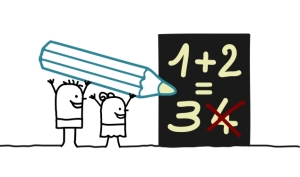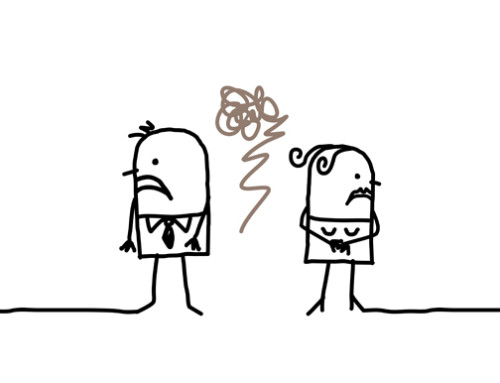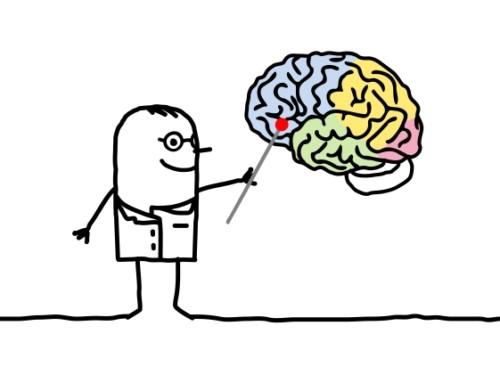In this article, I discuss how recognizing that your thoughts do not necessarily reflect reality can lead to big improvements in your emotional well-being.
Estimated reading time: 5 minutes.
The practice of mindfulness focuses on accepting thoughts and emotions rather than resisting them. There are key benefits to this acceptance. One is that, when we accept our thoughts and feelings–particularly negative or disturbing ones–we realize that we can handle them and function effectively despite having them. A second benefit of acceptance is that it removes the negative emotional and cognitive reaction we have a result from resisting negative thoughts and emotions. For example, if one can accept the emotion of anxiety then one does not experience additional distress about experiencing this emotion.
One of the most straightforward and effective mindfulness skills which I’ve come across is ‘cognitive defusion’. In the following sections, I will discuss this technique and how it can facilitate acceptance of one’s thoughts and emotions.
Cognitive defusion: The opposite of cognitive fusion
To understand what cognitive defusion is and how it is helpful in accepting your thoughts and emotions, it is necessary first to understand the opposite concept of cognitive fusion. Cognitive fusion refers to ‘fusing’ with the thoughts which enter your mind in that you equate those thoughts with reality regarding yourself, other people, how other people feel about you, future events and whether you will be able to cope with them, among others.
There are two main problems with cognitive fusion. One is that it leads you to have an inaccurate view of reality regarding yourself, other people, how other people feel about you, future events and whether you will be able to cope with them. The reason for this is that we have an enormous number of thoughts which enter our minds throughout the day. Although some of these thoughts may be accurate and helpful—such as remembering how to solve a problem or that you have an appointment that day—there are also many thoughts which enter our minds which are neither accurate nor helpful. Having the thought, ‘I’m a loser’ at a random moment or following not getting a job for which you had applied is an example of the latter kind of thought.
The second main problem with cognitive fusion is that it has negative emotional effects. When you view the fact that you had a negative thought enter your mind as evidence that it necessarily reflects reality, it leads you to have strong emotional reactions which can interfere with your being able to enjoy your day and function effectively.
For example, if you equate having the thought, ‘I am a loser’ with you actually being a loser, you are likely to feel depressed. If you equate having the thought, ‘I won’t be able to cope’ with believing that you will not be able to cope, you are likely to feel strong anxiety. If you equate having the thought, ‘He only cares about himself’ with believing that he only cares about himself, you are likely to feel strong anger. And if you equate having the thought, ‘Nothing I do works,’ with believing that nothing you do works, you are likely to feel strong frustration.
The negative emotional effects of cognitive fusion are compounded by the cognitive distortion known as ‘emotional reasoning’. This entails using the emotions you experience as evidence of reality. Using the examples, emotional reasoning would lead a person to think, ‘I feel depressed, so the thought that I’m a loser must be true’; ‘I feel anxious, so that the thought that I won’t be able to cope must be true’; ‘I feel anger, so the thought that he only cares about himself must be true’; and ‘I feel frustrated, so the thought that nothing I do works must be true’.
Needless to say, when cognitive fusion and emotional reasoning operate in tandem to lead to inaccurate negative beliefs and accompanying strong distressing emotions, it is very difficult to accept your thoughts and emotions. This leads to additional distress as a result of having these thoughts and emotions along with ongoing futile efforts to avoid and resist experiencing them.

Cognitive defusion: The antidote to cognitive fusion
Cognitive defusion refers to separating yourself from the thoughts which enter your mind in that you do not equate those thoughts with reality regarding yourself, other people, how other people feel about you, future events and whether you will be able to cope with them, among others.
Cognitive defusion helps you avoid the two main problems with cognitive fusion. First, it make it less likely that you will have an inaccurate view of reality regarding yourself, other people, how other people feel about you, future events and whether you will be able to cope with them. The reason is that in cognitive defusion you do not view the fact that you had a negative thought as evidence that it necessarily reflects reality.
Secondly, using cognitive defusion makes it less likely that you will experience the negative emotional effects which come with cognitive fusion. That is, when you do not view the fact that you had a negative thought as evidence that it necessarily reflects reality, it leads you to have more manageable emotional reactions which are less likely to interfere with your being able to enjoy your day and function effectively.
For example, if you do not equate having the thought, ‘I am a loser’ with you actually being a loser, you are less likely to feel depressed. If you do not equate having the thought, ‘I won’t be able to cope’ with believing that you will not be able to cope, you are less likely to feel strong anxiety. If you do not equate having the thought, ‘He only cares about himself’ with believing that he only cares about himself, you are less likely to feel strong anger. And if you do not equate having the thought, ‘Nothing I do works,’ with believing that nothing you do works, you are less likely to feel strong frustration.
Having more moderate emotional reactions as a result of using cognitive defusion also decreases the likelihood of these effects being compounded by emotional reasoning. In turn, the combination of being less prone to endorsing inaccurate negative beliefs and being less prone to experiencing the accompanying strong distressing emotions makes it it easier to accept your thoughts and emotions. This removes a motive for engaging in efforts to avoid and resist experiencing them.
The next step: Discussing how to use cognitive defusion
This article has focused on the advantages of using cognitive defusion over its cognitive fusion counterpart. This is a central topic in The Happiness Trap by Dr. Russ Harris.
In my next article, will discuss techniques which you can use to practice cognitive defusion and obtain its many benefits.
May you understand how cognitive defusion differs from cognitive fusion,
-Dr. Pat






Leave A Comment